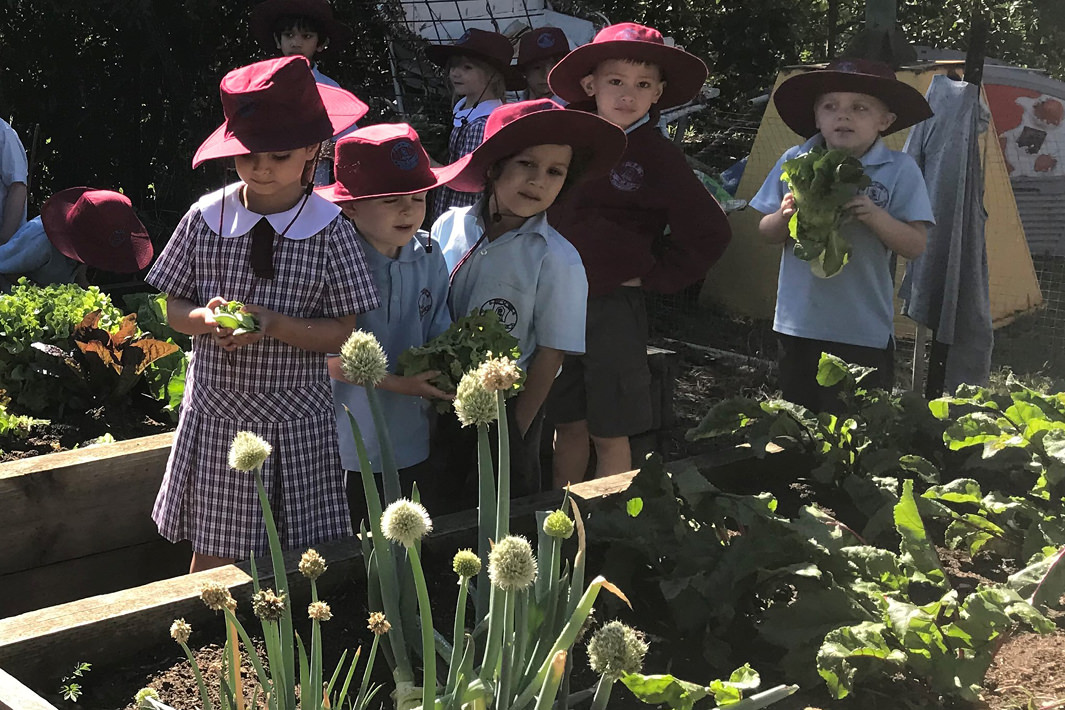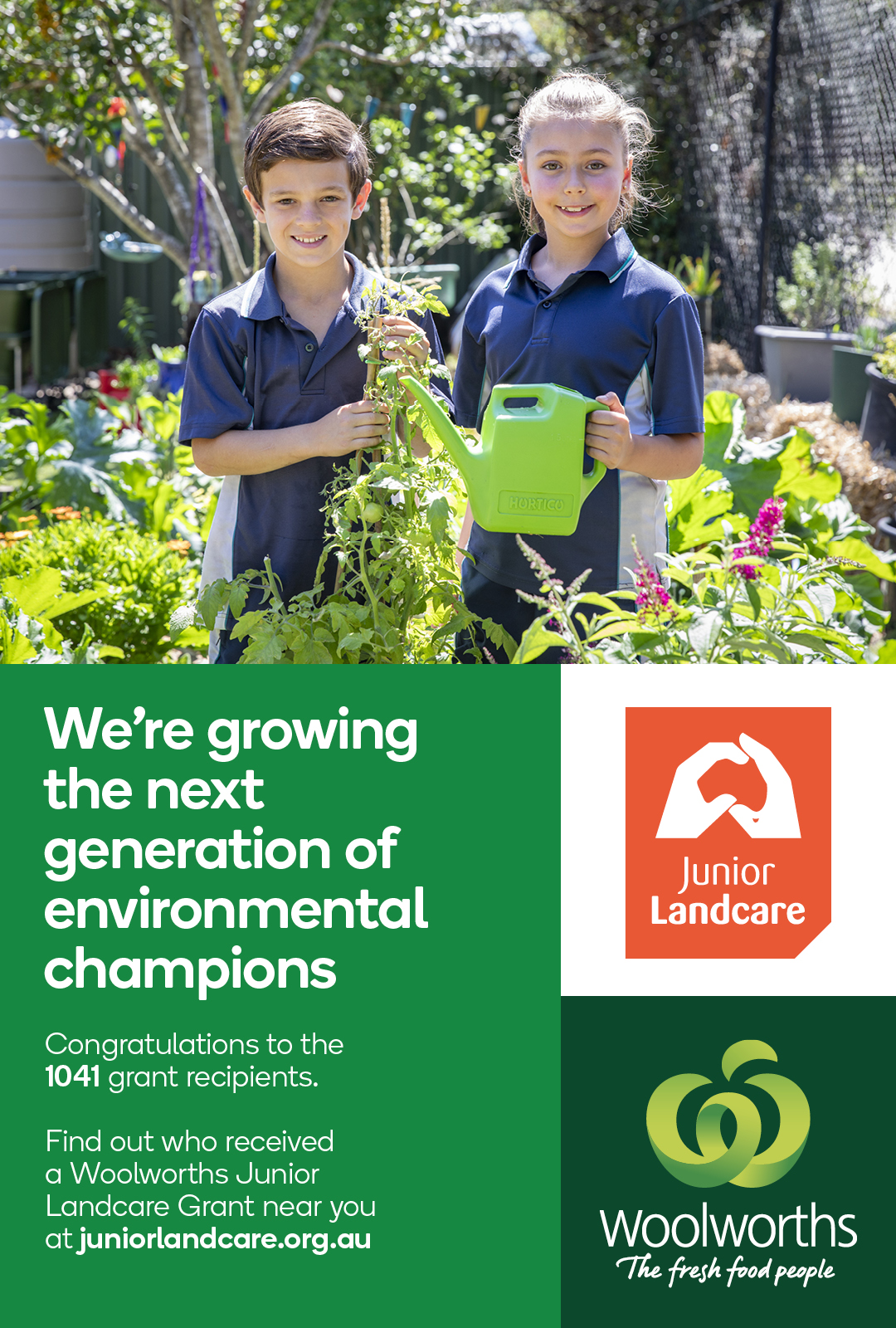CASE STUDY

Age Groups: 7-13
Grant Name:
School: Annangrove Primary School
Grant Sponsor: Woolworths
Project Overview:
Annangrove Primary School had an existing veggie patch that needed revitalising. There was a growing awareness throughout the school community of the importance of preserving and protecting the environment. This was partially due to the rate of building development in the area surrounding the school, which is destroying native habitats.
In line with this concern, they decided that the school garden would be the ideal vehicle for encouraging biodiversity and waste reduction, and modelling sustainable food production practices. By incorporating the garden into students’ learning, the school has been able to develop their understanding of patch to plate food production.
The school garden had been maintained using limited resources. With the injection of funds from a Woolworths Junior Landcare Grant, Annangrove students were able to implement or begin several elements of their Patch to Plate Revival project.
They set out to establish a composter, worm farm and stingless bee hive, introduce companion planting, put up shade, and increase the sustainable production of food for use by students and the wider community.
The children were the driving force behind Annangrove’s Patch to Plate project. Their enthusiasm grew as they were able to see, measure and report on the tangible outcomes and benefits from their work.
Environmental Outcomes
Reviving the school garden has increased students’ awareness of the importance of their relationship with the environment around them. Patch to plate food production offers the benefits of food grown sustainably, using minimal resources, for the whole school community to enjoy. It has helped students discover the great care it takes to grow our food, but also how food waste is disposed of.
Along with the school’s chickens, the composter and worm farm now help to reduce the amount of food waste going to landfill. Using food waste in this way creates helpful by-products with onward benefits in terms of nutrients that can be added back into the soil.
The veggie patch revival has encouraged native habitat, with companion planting helping to make the garden an inviting place for predatory bugs. Using the bugs for bugs method of pest control has reduced the use of pesticides in the school’s veggie patch. This approach benefits both the environment and the people eating produce from the garden.
The school is also in the process of organising their native stingless bee hive, which will help with pollination in the garden.
Educational Outcomes
Working with the garden has provided students with a multi-sensory experience that creates a solid foundation for many classroom skills. The veggie patch has complimented their learning in science, maths, humanities and social sciences – honing their investigative, research and social cooperation skills.
By providing holistic care for their patches, the students have been introduced to nature’s lifecycles. They now understand issues of cause and effect when it comes to the impacts of human activity on the environment and the survival of all living things. On a weekly basis students also collect data on growth, pH levels and rainfall. They then chart these results, presenting them back to class - where they discuss and hypothesize why certain changes have taken place.
Importantly, the children really enjoyed the collective sense of achievement and pride in their patch to plate revival project. They have also enthusiastically experimented with their produce in new recipes as part of a focus on personal, social and community health.
Conclusion
As custodians of beautiful bushland that is home to an array of bird and animal life, Annangrove Primary School was motivated to implement everyday sustainability practices within school life and lessons. Now they have an infrastructure in place, the students will continue to maintain the composter and worm farm. They are also growing seasonal produce on a rotational basis and caring for their patches.
"It has been wonderful to see the children be so actively involved, understanding life cycles, helping care and maintain the produce. The planting has actively encouraged the children to develop responsibility, patience and teamwork whilst learning about healthy eating and nutrition. The project has also inspired the children to start growing their own produce at home, it has been great to see their enthusiasm." Mrs K Neorcsik.
 Teachers & Educators
Teachers & Educators Youth or Community Groups
Youth or Community Groups